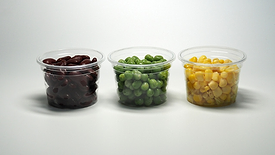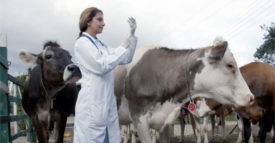Contamination Control
Paradise Lost: The Impact of the Emergence of Antimicrobial Resistance on Food Safety
The emergence of AMR in foodborne bacterial pathogens is a growing public health crisis, complicated by the overuse of antibiotics in agriculture
June 12, 2023
New Uses for Existing Technologies to Reduce the Risk of Persistent Pathogens on Surfaces in Retail Foodservice
The need remains for a continuous means of sanitizing and disinfecting high-touch and other environmental surfaces where persistent microbial pathogens can be found
June 12, 2023
Never miss the latest news and trends driving the food safety industry
eNewsletter | Website | eMagazine
JOIN TODAY!Copyright ©2025. All Rights Reserved BNP Media.
Design, CMS, Hosting & Web Development :: ePublishing











